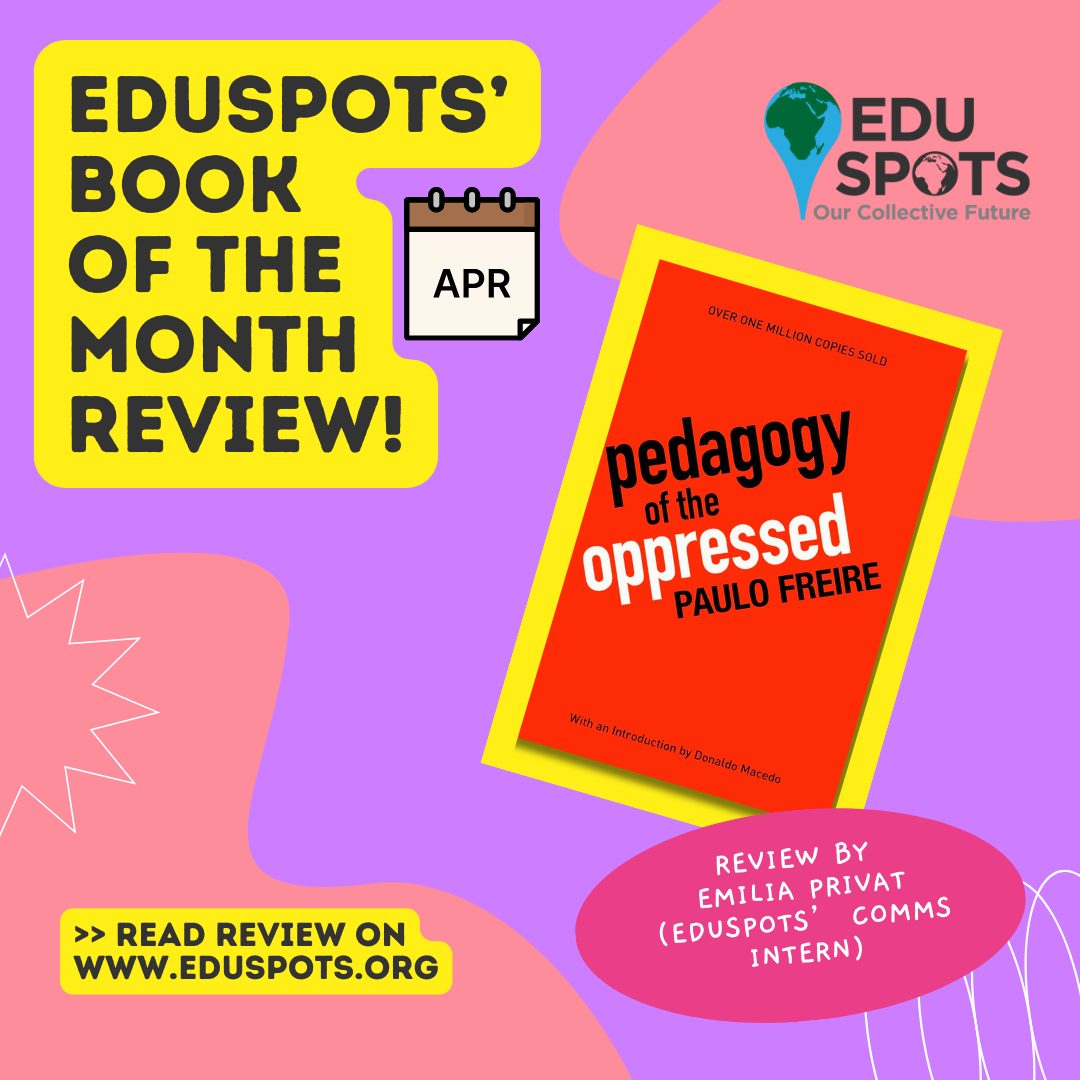Book Title: Pedagogy of the Oppressed
Author: Paulo Freire
Welcome to EduSpots’ Book of the Month, April edition! Every month, we delve into literature that not only broadens and challenges our understanding of development, but also inspires action towards a more just and equitable world.
Although Paulo Freire’s ‘Pedagogy of the Oppressed’ first revolutionized the field of education when it was published in 1968, it continues to inspire educators and activists worldwide. The work offers a radical critique of traditional pedagogy in which he challenges the conventional top-down model of education for its tendency to perpetuate oppression and reinforce existing power structures. Drawing on his experiences working with marginalized communities in Brazil, Freire proposes an alternative, emancipatory approach to learning that empowers both students and teachers.
Freire contends that when schooling merely functions as traditional ‘banking education’, as a passive transmitter of knowledge, it inhibits students’ potential to engage in critical thinking, ultimately disempowering them. Instead of reproducing existing social hierarchies and inequalities, Freire argues that education should help challenge them to contribute towards a more just and equitable society.
Freire’s concept of conscientization, or critical consciousness, is key to achieving this vision. It entails engaging in transformative dialogue where students are actively engaged in inquiry, reflection, and action so that they are encouraged to critically analyze their social reality and are inspired to change it. This approach also challenges previous pedagogical norms by rejecting the role of the teacher as the sole authority and embracing students’ contributions in shaping a dynamic learning environment where knowledge is co-created.
Freire’s emphasis on participatory learning aligns closely with EduSpots’ community-centered approach, which prioritizes the voices and experiences of local learners. By continuously fostering dialogue and collaboration, EduSpots empowers students to become active participants of their own education and agents of positive change in their communities.
Do check out EduSpots’ Online Courses where we analyse some of these important texts in depth.

